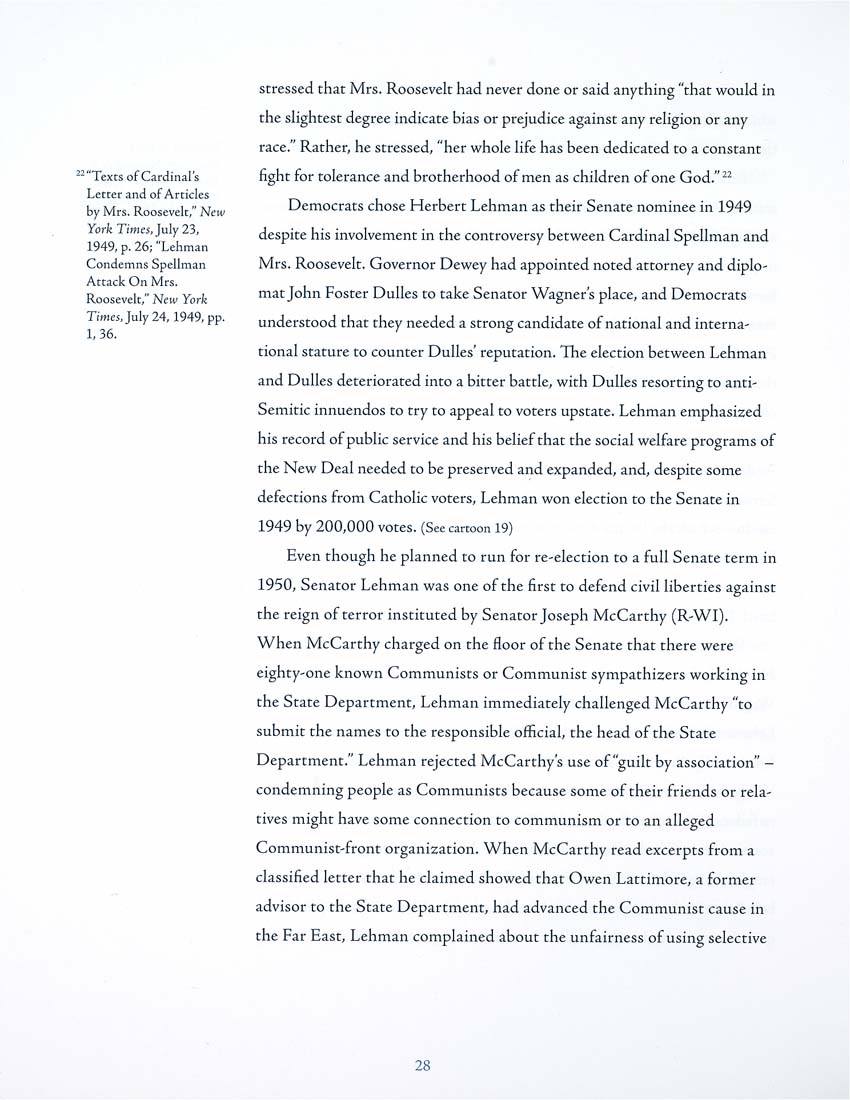^^ "Texts of Cardinal's
Letter and of Articles
by Mrs. Roosevelt," New
York Times, July 23,
1949, p. 26; "Lehman
Condemns Spellman
Attack On Mrs.
Roosevelt," New York
Times,July24, 1949, pp.
1,36.
Stressed that Mrs. Roosevelt had never done or said anything "that would in
the slightest degree indicate bias or prejudice against any religion or any
race." Rather, he stressed, "her whole life has been dedicated to a constant
fight for tolerance and brotherhood of men as children of one God."^^
Democrats chose Herbert Lehman as their Senate nominee in 1949
despite his involvement in the controversy between Cardinal Spellman and
Mrs. Roosevelt- Governor Dewey had appointed noted attorney and diplo¬
mat John Foster Dulles to take Senator Wagner's place, and Democrats
understood that they needed a strong candidate of national and interna¬
tional stature to counter Dulles' reputation. The election between Lehman
and Dulles deteriorated into a bitter battle, with Dulles resorting to anti-
Semitic innuendos to try to appeal to voters upstate. Lehman emphasized
his record of public service and his belief that the social welfare programs of
the New Deal needed to be preserved and expanded, and, despite some
defections from Catholic voters, Lehman won election to the Senate in
1949 by 200,000 votes. (See cartoon 19)
Even though he planned to run for re-election to a full Senate term in
1950, Senator Lehman was one of the first to defend civil liberties against
the reign of terror instituted by Senator Joseph McCarthy (R-WI).
When McCarthy charged on the floor of the Senate that there were
eighty-one known Communists or Communist sympathizers working in
the State Department, Lehman immediately challenged McCarthy "to
submit the names to the responsible official, the head of the State
Department." Lehman rejected McCarthy's use of "guilt by association" -
condemning people as Communists because some of their friends or rela¬
tives might have some connection to communism or to an alleged
Communist-front organization. When McCarthy read excerpts from a
classified letter that he claimed showed that Owen Lattimore, a former
advisor to the State Department, had advanced the Communist cause in
the Far East, Lehman complained about the unfairness of using selective
|








